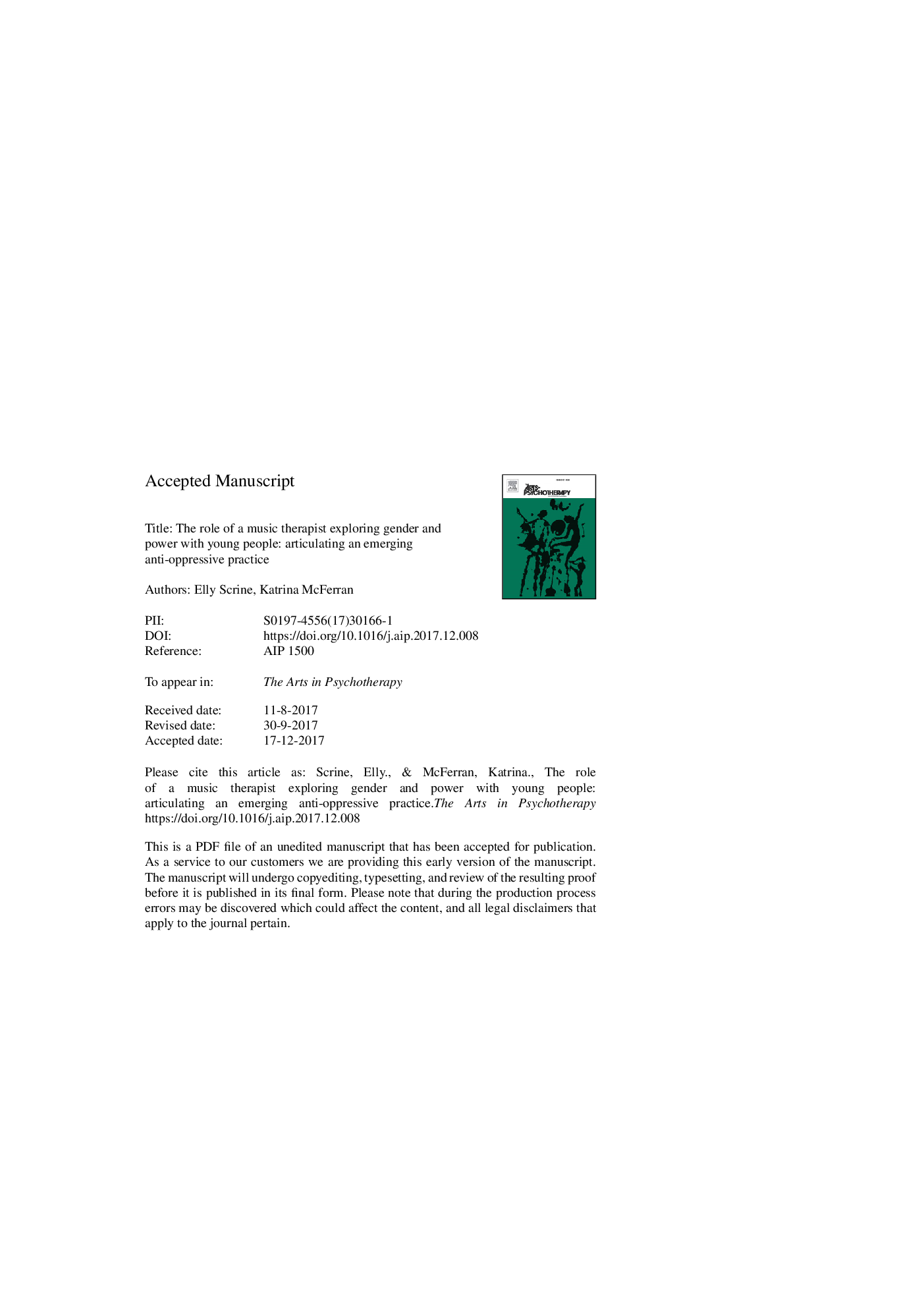ترجمه فارسی عنوان مقاله
نقش یک درمانگر موسیقی که جنسیت و قدرت را با جوانان بررسی می کند: تعریف یک عمل ضد سرکوب کننده ظهور
عنوان انگلیسی
The role of a music therapist exploring gender and power with young people: Articulating an emerging anti-oppressive practice
| کد مقاله | سال انتشار | تعداد صفحات مقاله انگلیسی |
|---|---|---|
| 119936 | 2018 | 41 صفحه PDF |
منبع

Publisher : Elsevier - Science Direct (الزویر - ساینس دایرکت)
Journal : The Arts in Psychotherapy, Volume 59, July 2018, Pages 54-64
ترجمه کلمات کلیدی
موزیک درمانی، نوجوانان، فمینیسم، تمرین ضد سرکوبگر، جنسیت، مدارس،
کلمات کلیدی انگلیسی
Music therapy; Adolescents; Feminism; Anti-oppressive practice; Gender; Schools;

